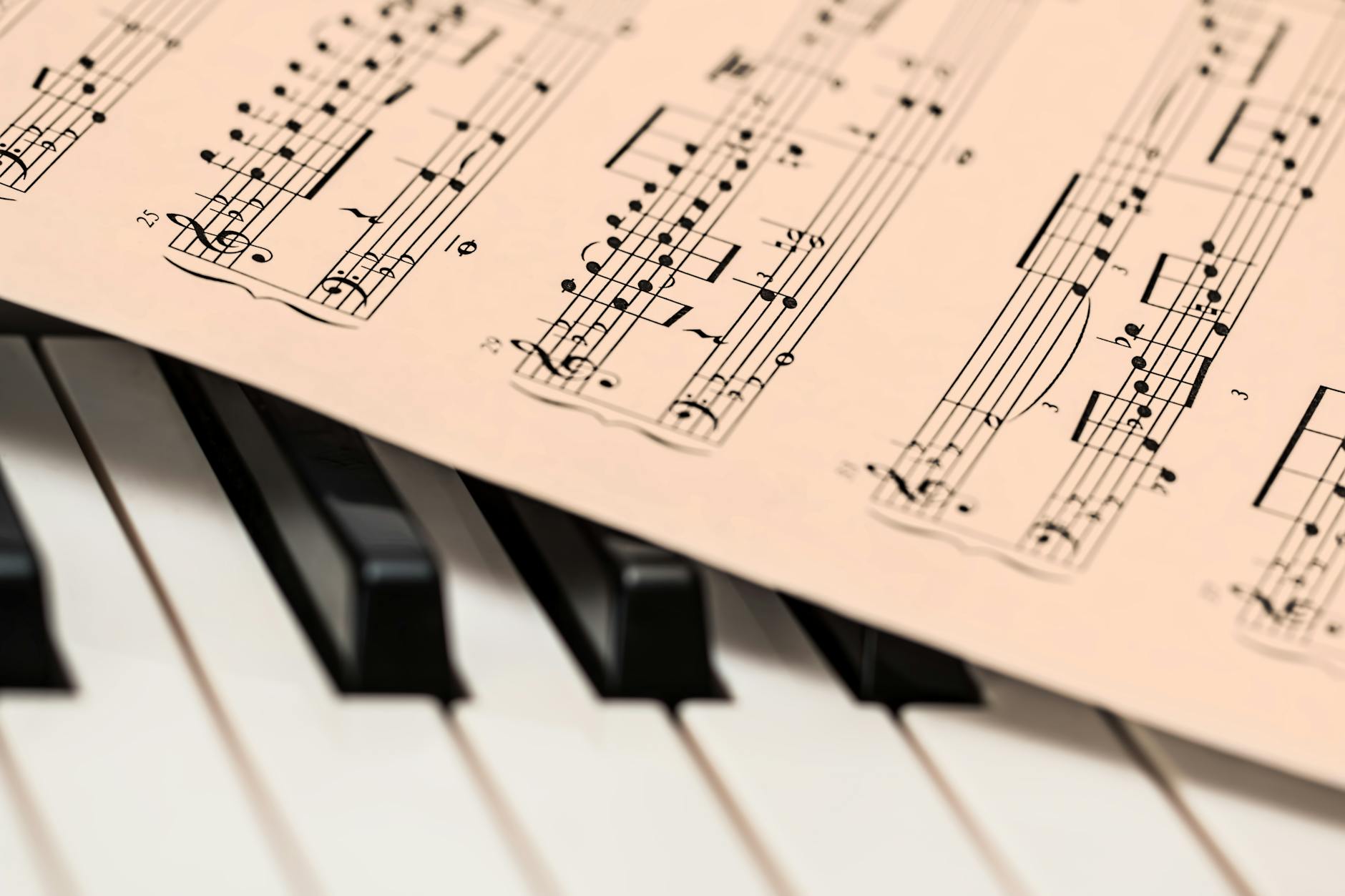Piano lessons aren’t just about learning classical pieces from the likes of Mozart and Beethoven. They’re also about exploring a wide range of musical genres. And yes, that includes pop hits from superstars like Beyoncé!
This musical journey is not only enjoyable but also expands your skills as a pianist. Imagine being able to play a soulful classical piece one moment and then rocking a modern pop tune the next!
In the following sections, we’ll delve into different musical genres that you can explore in piano lessons. Whether you’re a budding pianist or an experienced player looking to spice things up, there’s something for everyone. Let’s get started!
The Power of Piano Lessons
Learning to play the piano is an incredible journey that has the power to transform lives. The benefits of learning this beautiful instrument are numerous, ranging from personal development to cognitive enhancements. Moreover, exploring different genres in piano lessons opens up a whole new world of musical possibilities and enriches the learning experience. In this section, we will delve into the amazing benefits of learning piano and discuss why it is crucial to explore various genres.
Benefits of Learning Piano
Learning to play the piano offers a multitude of benefits that extend far beyond musical proficiency. Here are some of the incredible advantages that await you when you embark on this musical journey:
- Improved cognitive abilities: Playing the piano stimulates the brain, enhancing memory, concentration, and problem-solving skills. It is like a mental workout that keeps your mind sharp and agile.
- Enhanced creativity: As you play the piano, you have the freedom to express yourself through music. This creative outlet not only allows you to explore your emotions but also encourages you to think outside the box.
- Stress relief: Music has the power to soothe the soul, and playing the piano can be a therapeutic experience. It provides an escape from the stresses of daily life, allowing you to relax and unwind.
- Increased discipline and perseverance: Learning to play the piano requires dedication, discipline, and practice. By committing to regular practice sessions, you develop a strong work ethic and the ability to persevere through challenges.
- Boosted self-confidence: As you progress in your piano journey and master new pieces, your self-confidence soars. The sense of accomplishment you feel when you can play a beautiful melody is truly empowering.
- Improved coordination: Playing the piano requires coordination between your hands, fingers, and feet. Over time, you’ll notice improved dexterity and hand-eye coordination, which can benefit you in various other areas of life.
These are just a few of the many benefits that learning the piano can bring into your life. Now let’s explore why it’s important to explore different genres in piano lessons.
Why Explore Different Genres?
Music is a vast and diverse world, filled with a myriad of genres and styles. By exploring different genres in your piano lessons, you open yourself up to a wealth of musical experiences. Here’s why it’s essential to venture beyond a single genre:
- Broadened musical horizons: Each genre has its own unique characteristics and history. Exploring different genres exposes you to various musical traditions, styles, and techniques, expanding your musical knowledge and appreciation.
- Versatility and adaptability: Learning different genres equips you with a diverse set of skills that can be applied to various musical contexts. Whether you’re playing classical, jazz, pop, or any other genre, you’ll be able to adapt and excel.
- Personal growth and artistic expression: Each genre has its own emotional depth and artistic nuances. Exploring different genres allows you to discover which styles resonate with you the most, helping you develop your own musical voice and expression.
- Audience engagement: Different genres appeal to different audiences. By expanding your repertoire across genres, you can connect with a wider range of listeners and share your musical passion with diverse communities.
Remember, the journey of piano playing is not restricted to a single genre. Embrace the opportunity to explore different genres, as it can truly transform your musical experience and open doors to new possibilities. So, let the melodies guide you as you embark on this exciting musical adventure!
 Selective Focus Photography of Upright Piano (Photo by Pixabay)
Selective Focus Photography of Upright Piano (Photo by Pixabay)
Classical Connoisseurs
Are you ready to embark on a musical journey that spans centuries? In this section, we will delve into the world of classical music and explore the genius of Mozart, Beethoven, and Chopin. Prepare to be captivated by their timeless compositions and discover why these classical connoisseurs continue to be revered today.
Mozart: The Child Prodigy
 A Young Boy with Freckles on His Face Playing Piano (Photo by Mikhail Nilov)
A Young Boy with Freckles on His Face Playing Piano (Photo by Mikhail Nilov)
Let’s start our exploration with the incredible talent of Wolfgang Amadeus Mozart. Considered one of the greatest composers of all time, Mozart’s music has enraptured audiences for centuries. But did you know that he was composing music at the tender age of five? Yes, you read that right – five!
Mozart’s compositions are characterized by their beauty, complexity, and emotional depth. From the lively and playful “Eine kleine Nachtmusik” to the hauntingly beautiful “Requiem,” his music takes us on a journey through a range of emotions. With each note, Mozart’s genius shines through, leaving us in awe of his unparalleled talent.
If you want to experience the magic of Mozart for yourself, take a moment to listen to his Piano Concerto No. 21 in C Major. Close your eyes and let the music transport you to a world of elegance and grandeur.
Beethoven: The Revolutionary
 Woman in White Top (Photo by Vitória Santos)
Woman in White Top (Photo by Vitória Santos)
Ludwig van Beethoven, the revolutionary composer who defied conventions and pushed the boundaries of classical music. Beethoven’s compositions are bold, powerful, and full of passion. His music is an expression of his own struggles and triumphs, resonating with listeners on a deeply emotional level.
One of Beethoven’s most well-known works is his Symphony No. 5 in C Minor. The iconic four-note motif that opens the symphony has become instantly recognizable, symbolizing the triumph of the human spirit over adversity. It’s a composition that demands your attention, taking you on a rollercoaster of emotions from the first note to the last.
Beethoven’s music serves as a reminder that art has the power to transcend time and connect us across generations. So, go ahead and immerse yourself in the genius of Beethoven’s compositions – you won’t be disappointed.
Chopin: The Poet of the Piano
 Free stock photo of affection, blooming, bright (Photo by Lana)
Free stock photo of affection, blooming, bright (Photo by Lana)
Last but certainly not least, we have Frédéric Chopin, often referred to as the “Poet of the Piano.” Chopin’s music is characterized by its delicate beauty and emotional depth. His compositions are like intricate tapestries, woven with tender melodies and expressive harmonies.
One of Chopin’s most beloved pieces is his Nocturne in E-flat Major, Op. 9, No. 2. Close your eyes and let the gentle, melancholic melody wash over you like a warm summer breeze. It’s a piece that tugs at your heartstrings and evokes a sense of nostalgia.
Chopin’s music captures the essence of human emotions, from joy to sorrow, longing to hope. Through his compositions, he invites us to experience the full spectrum of the human experience.
So, whether you’re a seasoned classical music lover or just dipping your toes into this timeless genre, exploring the works of Mozart, Beethoven, and Chopin is an enriching and rewarding experience. Let their music ignite your imagination and transport you to a world of beauty and emotion.
Continue your musical journey with our next section as we explore the vibrant world of Jazz pianists. Stay tuned for more melodic adventures!
Jazz It Up
Jazz has a way of captivating audiences with its infectious rhythms and soulful melodies. From the early days of Ragtime to the swinging sounds of the Swing era, and the fast-paced virtuosity of Bebop, the world of jazz offers a rich tapestry of musical possibilities for piano players to explore.
Ragtime
 Empty paper sheet placed on autumn foliage (Photo by Marta Wave)
Empty paper sheet placed on autumn foliage (Photo by Marta Wave)
Ragtime, with its syncopated melodies and lively rhythms, emerged in the late 19th century and became wildly popular in the early 20th century. This uniquely American genre combines elements of classical music with African rhythms, creating a distinctive style that is both playful and sophisticated.
As a piano player delving into the world of Ragtime, you’ll encounter intricate left-hand patterns that create a “ragged” feel, while your right hand dances on the keys, bringing out the catchy melodies. Scott Joplin, known as the “King of Ragtime,” composed numerous ragtime hits that have become classics, such as “Maple Leaf Rag” and “The Entertainer.”
To learn more about the history and techniques of Ragtime, check out this informative article on Jazz in America.
Swing
 Free stock photo of action, bending, black boots (Photo by cottonbro studio)
Free stock photo of action, bending, black boots (Photo by cottonbro studio)
When you think of Swing, images of energetic dancers effortlessly moving to the lively beats come to mind. This vibrant genre emerged in the 1930s and 1940s, bringing people together on dance floors across the nation. Swing music is characterized by its infectious rhythm section, featuring a driving bass line, pulsating drums, and the iconic sound of the brass section.
For aspiring piano players, Swing offers a chance to showcase your improvisational skills and play those infectious melodies that get people on their feet. Artists like Count Basie, Duke Ellington, and Benny Goodman are synonymous with Swing and have left an indelible mark on the genre.
To dive deeper into the world of Swing and learn more about its history and influential artists, visit this resourceful website.
Bebop
 Music Sheet on Organ (Photo by Pixabay)
Music Sheet on Organ (Photo by Pixabay)
Bebop, born in the 1940s, is an intricate and complex genre that pushes the boundaries of jazz. It is characterized by its rapid tempos, intricate melodic lines, and daring improvisations. Bebop represents a departure from the dance-oriented Swing era and a shift towards a more intellectual and virtuosic approach to jazz.
As a piano player exploring Bebop, you’ll encounter intricate chord progressions and lightning-fast runs that demand technical dexterity and a keen ear for harmony. Pioneers of Bebop, such as Charlie Parker and Dizzy Gillespie, revolutionized the genre and paved the way for future jazz innovations.
To delve into the world of Bebop and gain insights into its complex nature, visit this in-depth article on NPR’s A Blog Supreme.
Jazz offers a diverse range of styles and expressions, allowing piano players to explore different musical paths. Whether you choose to embrace the playful rhythms of Ragtime, the infectious energy of Swing, or the intricate improvisations of Bebop, delving into the world of jazz will undoubtedly enhance your musical journey. So, grab your sheet music and let’s jazz it up!
Rock the Keys
Are you ready to rock out on the piano? In this section, we’ll explore the world of rock music and how it can be a fantastic genre to learn on the keys. From the legendary Beatles to the flamboyant Elton John and the soulful Billy Joel, rock music has given us some of the most iconic piano-driven hits of all time. So let’s dive in and discover the magic of rock the keys!
The Beatles: Revolutionizing Rock Music
 Photo of a Band Performing Together (Photo by cottonbro studio)
Photo of a Band Performing Together (Photo by cottonbro studio)
No discussion about rock music would be complete without mentioning the legendary Beatles. This sensational British band revolutionized the world of music and left an indelible mark on the rock genre. With timeless classics like “Let It Be,” “Hey Jude,” and “Yesterday,” the Beatles showcased their incredible songwriting prowess and John Lennon’s masterful piano skills.
The Beatles’ songs often featured simple yet captivating piano melodies that perfectly complemented their catchy tunes. Just imagine the joy of playing the iconic piano intro of “Let It Be,” or the melancholic chords of “Yesterday.” Learning their music will not only improve your piano skills but also allow you to appreciate the genius of their songwriting.
To learn more about the Beatles and their impact on rock music, check out this website for a comprehensive overview of their discography, history, and more.
Elton John: The Piano Man
 Group of Men Playing Guitar in Concert in Grayscale Photo (Photo by Pixabay)
Group of Men Playing Guitar in Concert in Grayscale Photo (Photo by Pixabay)
When it comes to piano-driven rock music, Elton John is a name that cannot be overlooked. With flamboyant costumes, energetic performances, and unforgettable hits, Elton John has been captivating audiences for decades. Songs like “Your Song,” “Rocket Man,” and “Tiny Dancer” have become timeless classics that continue to inspire aspiring pianists around the globe.
Elton John’s piano playing style is filled with passion, flair, and technical brilliance. Learning his music will help you develop your finger dexterity, explore complex chord progressions, and add a touch of showmanship to your playing. So, why not embark on a musical journey with the one and only Elton John?
To learn more about Elton John and his incredible career, visit this website for a treasure trove of information, discography, and tour dates.
Billy Joel: The Piano Man’s Legacy
 Mother Tickling Her Cute Daughter (Photo by Arina Krasnikova)
Mother Tickling Her Cute Daughter (Photo by Arina Krasnikova)
Our exploration of rock the keys wouldn’t be complete without mentioning the one and only Billy Joel. Known as the “Piano Man,” Billy Joel has crafted countless hits that have become anthems for generations. From the captivating storytelling of “Piano Man” to the infectious energy of “Uptown Girl,” Billy Joel knows how to create music that resonates with audiences of all ages.
Billy Joel’s music is a perfect blend of rock, pop, and jazz influences, making it a fantastic genre to explore on the piano. Through his music, you can learn different playing techniques, explore complex harmonies, and dive into the art of songwriting. So, get ready to channel your inner Piano Man and bring Billy Joel’s timeless melodies to life.
To delve deeper into Billy Joel’s musical legacy, head over to this website for a wealth of information, albums, and tour updates.
Rock the keys and unleash your inner rockstar! The Beatles, Elton John, and Billy Joel have left an enduring legacy in the world of rock music, and by learning their songs, you can not only enhance your piano skills but also experience the joy of playing some of the greatest hits of all time. So, grab your piano, crank up the volume, and let your fingers dance across the keys as you embark on this rock-filled musical adventure!
Pop Sensations
Pop music has always been a force to be reckoned with, dominating the charts and capturing the hearts of millions around the world. In this section, we’ll take a closer look at some of the biggest pop sensations in recent history – Whitney Houston, Adele, and Beyoncé. These powerhouse women have not only left an indelible mark on the music industry but have also redefined what it means to be a pop star.
Whitney Houston
 Photo of a Band Performing Together (Photo by cottonbro studio)
Photo of a Band Performing Together (Photo by cottonbro studio)
Whitney Houston was a true icon, known for her powerhouse vocals and incredible range. Her hits like “I Will Always Love You” and “Greatest Love of All” are timeless classics that still resonate with audiences today. Houston’s ability to convey raw emotions through her music was unparalleled, making her an inspiration for aspiring singers all over the world.
Despite her tragic passing in 2012, Whitney Houston’s impact on pop music cannot be overstated. Her voice continues to captivate listeners and her influence can be heard in the work of many contemporary artists.
Adele
 Photo of a Woman Singing Near Musicians (Photo by cottonbro studio)
Photo of a Woman Singing Near Musicians (Photo by cottonbro studio)
Adele burst onto the music scene with her soulful ballads and emotionally-charged lyrics. Her debut album, “19,” showcased her incredible vocal talent and garnered critical acclaim. Songs like “Someone Like You” and “Rolling in the Deep” struck a chord with listeners, propelling Adele to international stardom.
What sets Adele apart is her ability to connect with her audience on a deeply personal level. Her songs speak to universal experiences of heartbreak, love, and resilience, making her music relatable to people from all walks of life.
Beyoncé
 Free stock photo of art, audience, auditorium (Photo by Deniss Bojanini)
Free stock photo of art, audience, auditorium (Photo by Deniss Bojanini)
Beyoncé is a force of nature, a powerhouse performer, and an undeniable icon. From her early days with Destiny’s Child to her solo career, Beyoncé’s artistry has consistently pushed boundaries and challenged the status quo. Her hits like “Crazy in Love” and “Single Ladies (Put a Ring on It)” have become anthems for a generation.
Not only is Beyoncé a talented singer, but she is also a visionary and a role model for women around the world. Her performances are electrifying, her messages powerful, and her dedication to her craft unwavering.
In conclusion, Whitney Houston, Adele, and Beyoncé are just a few examples of the incredible talent that pop music has to offer. Each artist brings their unique style and voice to the genre, captivating audiences and leaving a lasting impact. Whether it’s Whitney Houston’s soulful melodies, Adele’s emotional ballads, or Beyoncé’s empowering anthems, these pop sensations have shaped the landscape of popular music and continue to inspire new generations of artists.
Conclusion
In conclusion, exploring different genres in piano lessons is like embarking on a musical adventure. From classical maestros like Mozart to modern-day divas like Beyoncé, there is a vast world of musical styles waiting to be discovered. By embracing diversity in our piano education, we not only expand our repertoire but also enhance our musical abilities and understanding.
Diving into different genres allows us to experience the rich tapestry of music, learning new techniques, rhythms, and melodies along the way. Whether it’s the elegance of a classical sonata or the infectious beats of a pop tune, each genre offers its own unique set of challenges and rewards.
By incorporating a variety of genres into our piano lessons, we can cultivate a well-rounded musical palette. This not only keeps our practice sessions fun and exciting but also helps us become versatile musicians capable of playing a wide range of styles.
So, let’s break free from the confines of a single genre and let our musical curiosity guide us. Let’s challenge ourselves with the complexities of classical compositions and groove to the latest chart-topping hits. By embracing the diversity of musical genres, we can truly unlock our full potential as pianists and create a harmonious symphony of sounds.
